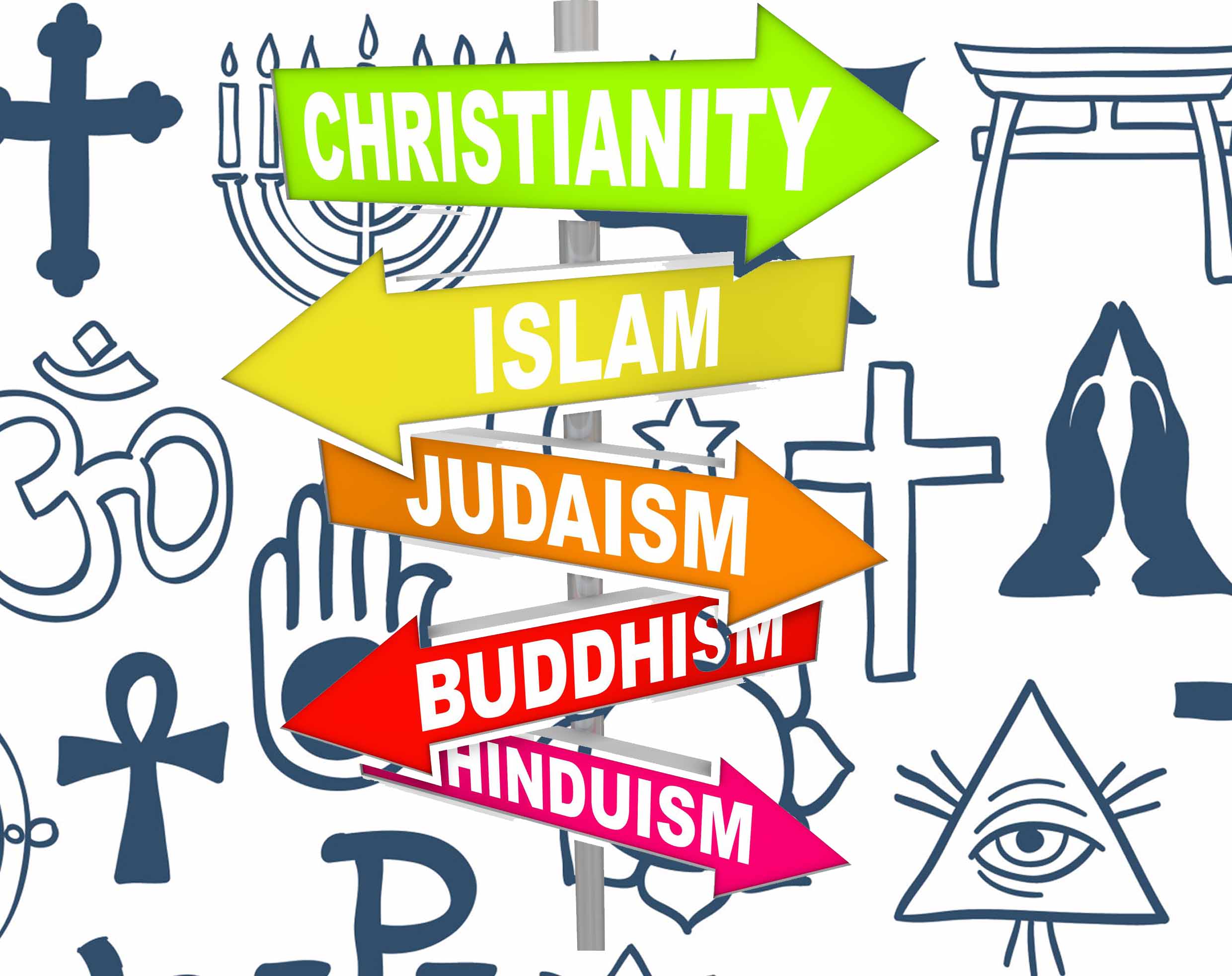Religion is a particular set of beliefs and practices. World Council of Religion
Introduction
Fear as Lucretius said was the first mother of the Gods. Primitive life was beset with a thousand dangers and rarely ended with natural death. Early men attributed death to the operation of supernatural agencies.
One of the first objects to be worshipped was probably the moon. He was believed to cause the menstruation of women. We don’t know when the sun replaced the moon as the Lord of the sky in the primitive religion. Then the earth became a goddess, fertilized by the hot rays of the sun. Almost everywhere the earth was great mother-Ishtar, Cybil, Demeter, Aphrodite and Mata. The sky became a great god, worshipped as the holder and giver of rain.
All the ancient cultures were polytheistic (worshipper of many gods). In many parts of the world-Egypt, Judea, Persia, India, China, the priestly class with the warrior class has ruled the society. According to Will Durant the priest did not create religion, he merely used it. He wrote most of the religious Scriptures around the world. He became a broker between the supernatural god and the man.
All faiths claim their god is the only god and their Scriptures to be divinely revealed. However, most religious thoughts have evolved over times. The Scriptures are the products of their times and place. The authors have interpreted oral traditions considered appropriate for their times. Except for the Quran, most Scriptures have multiple authors of different times. They have been edited and re-edited. There is no proof that any of them were divinely revealed. The Mosaic codes of the Hebrew Bible came from the codes of Hammurabi. The idea of monotheism of the Hebrew Bible came from King Ikhnaton (1380 BCE) of Egypt and Zarathustra of Persia.
The Hebrew prophets were predecessors of Jesus and Muhammad. The Asceticism of the Christian monks and the Muslim Sufis came from the Hindu Ascetics. The Aryan gods of the Hindus came from Persia. Indian Buddhist thoughts influenced Chinese Confucianism and Taoism. Greek influence can be found in the Old and the New Testaments. It also influenced Indian thoughts and culture. Indian thoughts and culture influenced Greece, Persia and Judea.
The world’s principal religions and spiritual traditions may be classified into a small number of major groups. The modern meaning of the phrase “world religion” began with the 1893 Parliament of World’s Religions in Chicago. Swami Vivekananda of India represented as a delegate of Hinduism at the conference.
Classification:
Religious traditions fall into super-groups, arranged by historical origin and mutual influence.
- Middle Eastern Religions:
Abrahamic religions are the largest group, and they are Judaism, Christianity, Islam, and the Baha’i Faith.
- Iranian Religions:
They are Zoroastrianism, Yezidism, and Gnosticism.
- Indian Religions:
They include Hinduism, Jainism, Buddhism and Sikhism.
- East Asian Religions:
They are Confucianism and Taoism (Chinese), Shinto (Japanese and Korean).
- African Religions:
The religions of the tribal people of Sub-Sahara Africa.
- Indigenous Ethnic Religion:
These religions are found on every continent, now marginalized by the major organized faiths.
Size of Major Religious Groups in the World -2012
Christianity 31.5%
Islam 23.2%
Unaffiliated 16.3%
Hinduism 15%
Buddhism 7.1%
Folk Religion 5.9%
Other 0.8%
Judaism 0.2%



